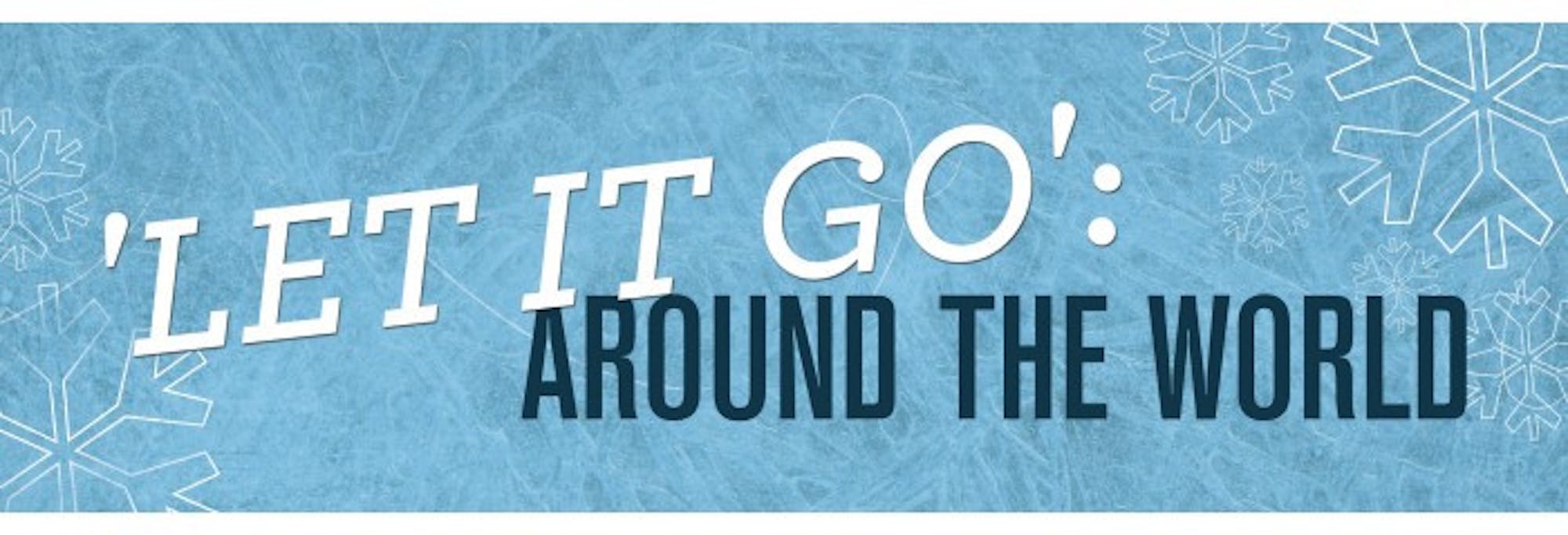
By JIMMY KEMPER
Scene Writer
Around Notre Dame and across the country, Disney’s hit animated feature “Frozen” has taken everyone by icy storm. So far, it has generated over $865 million in worldwide box office sales, and has been lauded as Disney’s best animated film since “The Lion King.”
One of the biggest hit songs from “Frozen” was “Let It Go”, performed by Idina Menzel, who voiced Elsa in “Frozen” and also originated the role of Elphaba in the Tony Award winning musical “Wicked.” The music video for the song has over 77 million hits on YouTube at the time of writing this article. By now, everyone who has seen “Frozen” has probably also seen the multi-language version of “Let It Go” that Disney released online, showing off all 25 languages the song has been released in. In order for the lyrics to match the rhythm of the song, translators had to take some creative liberties. But did you know what these foreign lyrics actually mean? When translated back into English, several versions of the song take on almost entirely different meanings.
One of the most interesting foreign versions by far is the Hungarian one. It’s dark, melancholic and at times downright depressing. The end of the first verse where Elsa normally complains about the “swirling storm inside” that she couldn’t keep in, heavens know she tried, is replaced instead with the frank lamentation: “I know I have ruined it, my awful deed pains me.” The famous cries of “Let it go, let it go” are changed to “Let there be snow, let there be snow.” When a determined Elsa declares “the cold never bothered me anyway” at the end of the English version, the Hungarian edition leaves listeners with the gloomy “my heart is still covered in ice.”
Also of note is the surprisingly uplifting and inspiring Mandarin rendition. The lyrics in this one are absolutely stunningly beautiful, and even compete with the original English ones. Elsa proclaims her “thoughts are like the whistling wind, like the surging wave,” understanding that “from this day, I control my future” and ultimately declaring that she’ll “never live in fear anymore, because I’ll conquer the frost and snow.” Conquering the frost and snow seems slightly cooler than never letting it bother you anyway.
Although the language does not necessarily fit the Scandinavian setting of “Frozen,” the Italian edition of the song is beautiful as well, with lyrics that shout of “the storm that won’t stop, because starting from today fate belongs to me.” Just as memorable are the somber Polish version, the tongue-twisting German version, and the traditional Latin version that one brave YouTuber wrote and sang.
No matter the language, the inspiring message of “Frozen” and, in particular, “Let It Go” transcends all cultures and can universally bring uplifting feelings of joy. If you haven’t seen this film yet, I highly recommend you do, or at the very least find one of the many versions of “Let it Go” on the Internet. You’re bound to find one that speaks to you.
Contact Jimmy Kemper at jkemper2@nd.edu













